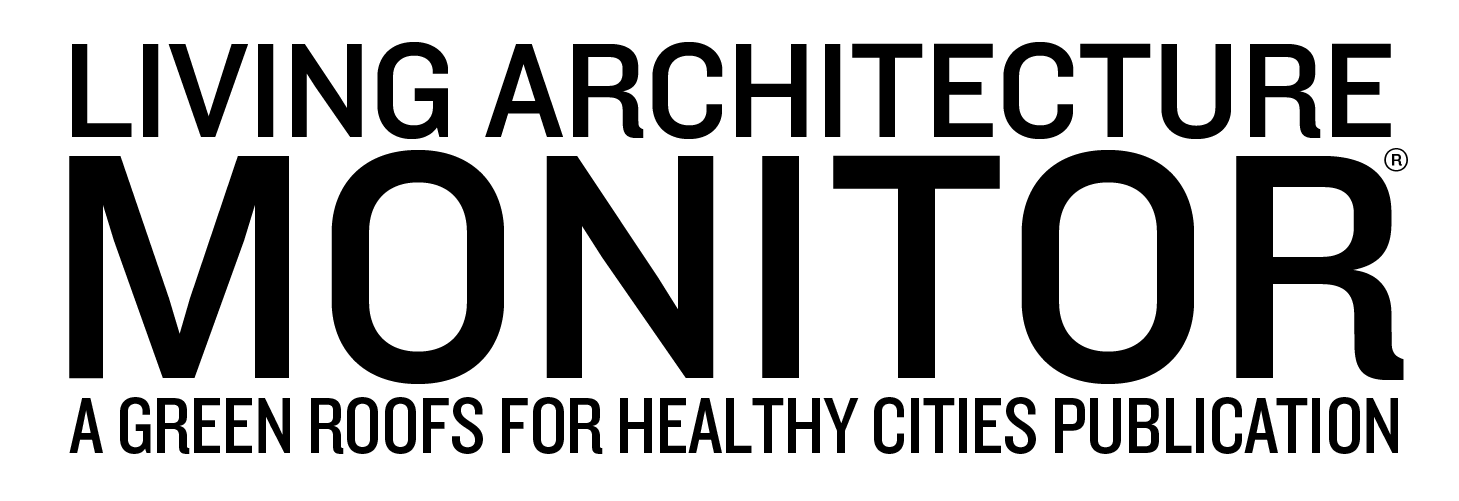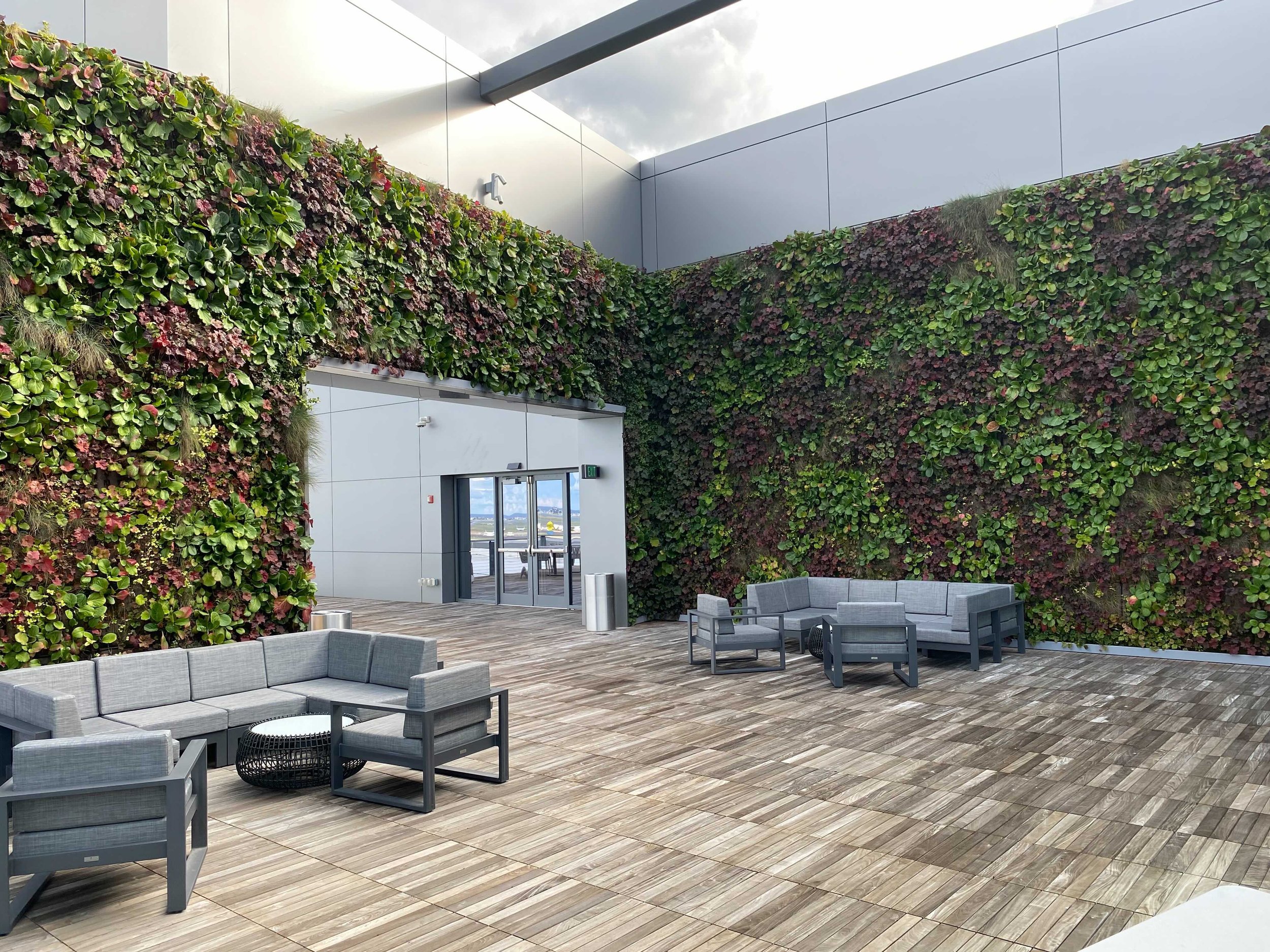Dr. Nadina Galle on the Internet of Nature
Advertisement
Over the past decade, there has been a lot of talk, research, and pilot projects around the concept of "smart cities", with promises of how new forms of integration between technology, ourselves, and how our cities operate will improve modern living. For the most part, nature, the very foundation on which cities are built, has been left out of these discussions. Yet we know from hundreds of studies that having access to nature makes us happier, less stressed, more content and perhaps even more generous. Dr. Nadina Galle shares with us her pioneering work on a new concept she calls the "Internet of Nature", in this edition of On The Roof With…
LAM: Thank you for sharing with us Dr. Galle! So what sparked your interest in this emerging field you call the "Internet of Nature"?
NG: I was born in the Netherlands and moved to southwestern Ontario at age six. Growing up in a typical suburb, I was fascinated by the inherent tension between urban development and natural ecosystems. I wondered, "who gets to make those decisions?", and it inspired me to learn more about Earth, first by studying Ecology and Evolutionary Biology (BSc) at the University of Toronto and the National University of Singapore, and then Earth Sciences (MSc) at the University of Amsterdam.
Dr. Nadina Galle will be speaking about the Internet of Nature at CitiesAlive Virtual on Wednesday, November 10, 2021. Register Today!
While working as an industrial and urban ecologist at Metabolic, a sustainability consulting firm in Amsterdam, I noticed ecology was often excluded from the "smart city" agenda. I found that strange because nature is a key ingredient in creating resilient cities. This question ultimately led me to pursue a Ph.D. in Ecological Engineering at University College Dublin (Ireland) and the Massachusetts Institute of Technology (USA), where I conceptualized the "Internet of Nature".
LAM: How would you define The Internet of Nature and why do you think focusing on this is important?
NG: The Internet of Nature is a framework for deploying emerging technologies to protect, restore—and reconnect people to—urban nature.
As urbanization sweeps the globe, placing the city at the center of human life, we're realizing our cities aren't cut out for the unprecedented heat waves, cold fronts, heavy rainfall events and more, that are now routine. A green city can reduce heat islands, filter stormwater, save electricity, increase real estate values, and improve overall population health, but we need to do a better job designing, planning, and implementing these nature-based solutions.
We can't manage what we don't measure, and technology offers us a way to do just that in a cost-effective and scalable way.
Advertisement
LAM: Would you please give us a few examples of the kinds of applications you would refer to as constituting The Internet of Nature and what type of benefits can be expected?
NG: There is a dazzling array of sustainable adaptations that fuse urban ecology with the power of the Internet—networks of trees wired with sensors to fight extreme heat and drought, on-demand drone imagery analyses that tackle urban deforestation, machine-learning algorithms that scan satellite imagery to prevent wildfire damage, augmented reality games that stir new passions for nature conservation, natural marshland that can be raised or lowered to stem the floods of oncoming storms and so many more. If you're interested in learning more, be sure to check out the Internet of Nature Podcast, where I take listeners into the lab, in the field, and onto the street with avant-garde innovators who are building greener and smarter cities.
The Internet of Nature. Image: © Dr. Nadina Galle
LAM: Much has been made about how great our lives will be through the adoption of the Internet of Things. How can the Internet of Nature help people live better lives, particularly marginalized people?
NG: We need to protect and improve urban greenery in the neighbourhoods that need it most. Technology has long been seen as an opposing force to nature, but I believe we can bridge these two worlds to create sustainable and just communities for all.
LAM: Children spend so much of their time in front of screens these days. What does the term 'gamification of nature' mean and what kind of impact do you think these technologies have in our future?
NG: Although technology can play a role in the decline of children's relationship with the natural world, it does not have to be destructive. It seems the issue is not technology per se, but rather how much, and how we use it. Mobile augmented reality games and plant identification apps can facilitate kids' first interactions with nature, much like how a pair of binoculars might be using to gain a greater understanding of the natural world around you.
By triggering a greater feeling of connectedness to nature, the Internet of Nature may be used as an instrument to reconnect children with nature in a broader sense, persuading them to visit the same natural environments again, but perhaps this time without the technology.
Dr. Nadina Galle is an award-winning ecological engineer, technologist, keynote & TEDx speaker, and podcaster. Nadina sees it as her mission to convey the importance of techno-ecological knowledge to the general public. She does this by writing articles, giving lectures, and appearing regularly in the media. Nadina and her work have been featured by BBC Earth, National Geographic, Fulbright, Newsweek, ELLE, and the European Space Agency. Between 2019 and 2021, both Forbes and Elsevier selected her for their 30 under 30 lists.
More Information
Listen to the Internet of Nature Podcast, which can be found all major podcast platforms (Spotify, Apple, Google, etc.)
Connect with Dr. Nadina Galle on LinkedIn (/nadinagalle), Twitter (@earthtonadina) and Instagram (@internetofnature_)
Dr. Nadina Galle will be speaking at CitiesAlive Virtual on Wednesday, November 10, 2021 - Register Today!







